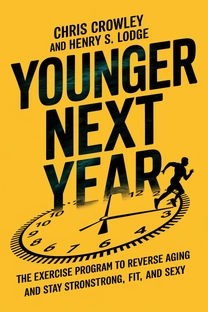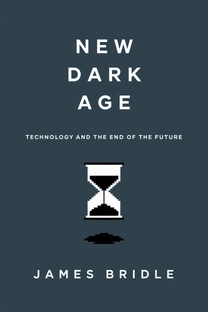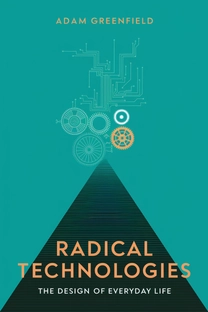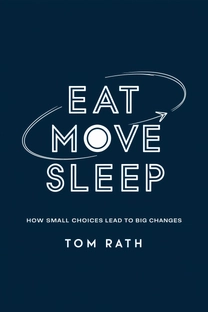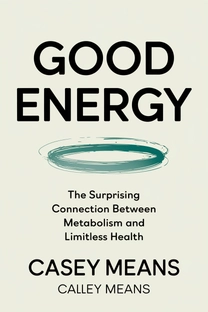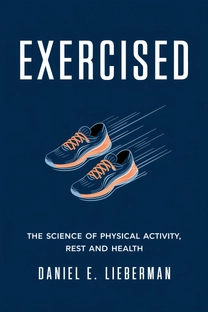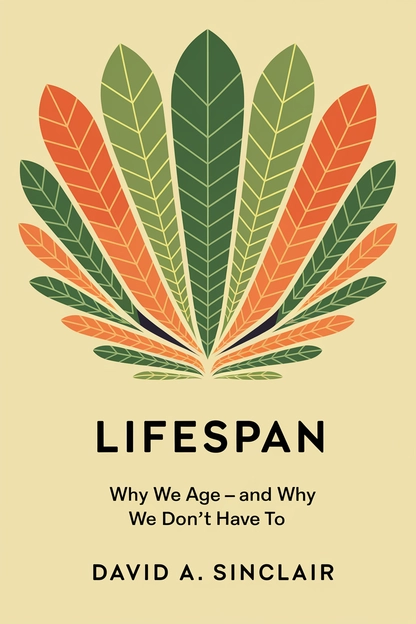
Lifespan
Why We Age — and Why We Don't Have to
by David A. Sinclair
Brief overview
This book explores how aging might be viewed as a condition we can actively manage or even reverse. It argues that growing older should no longer be accepted as inevitable, revealing the biological processes that drive aging and how to tap into hidden survival mechanisms. Readers can expect a compelling blend of cutting-edge science, practical guidance, and an optimistic vision of a future where extended healthspans are within reach.
Igniting a New Perspective
You might think of getting older as something that just happens, much like the changing of the seasons. But this book declares that aging is no mere inevitability—it’s a process that can be influenced at the cellular level. That idea alone can revolutionize how we view our bodies and our future.
From the start, readers are invited to leave behind the notion that our cells simply break down and retire. Instead, there's a call to see aging as the grand puzzle of biology, where each piece can be rearranged or even replaced. The premise: if we treat aging itself as a target for intervention, we address multiple diseases at once.
In these pages, you’ll discover why many researchers today regard ailments like cancer or heart disease as symptoms of a deeper cause—an aging framework gone awry. By tackling the core drivers of aging, we could slow or prevent the cascade of illnesses that plague later life.
As we step further, keep an open mind. It’s not just about living longer; it’s about preserving vitality, mobility, and curiosity. Picture an older generation climbing mountains, starting new careers, or simply feeling at peace in bodies that function more like those of youthful adventurers.
Shifting the Paradigm
Why hasn’t aging been approached like any other disease? Historically, because it’s so widespread, we’ve shrugged and said, “That’s just how it is.” But when something affects every human on the planet, isn’t that all the more reason to find a solution?
In this new worldview, aging is not simply the price we pay for living; it’s a biological mechanic that switches on and off certain protective genes. Fail to switch on these genes, and cells start losing their identity, forgetting whether they’re nerve cells, muscle cells, or immune warriors. Age-related diseases take hold in this cellular chaos.
The argument is that by classifying aging as a treatable condition, more resources would flow into cracking its code. This has happened with other threatening conditions in human history, from polio to smallpox: define the target, direct funding, and witness a revolution in health outcomes. Imagine how many years could be added to millions of lives if we focus on the aging process itself.
Still, many balk at the idea. Isn’t it “unnatural” to live much longer? The book suggests it’s not about avoiding death altogether. Instead, it’s about squaring the curve of life so that we stay healthy and vibrant until the very end. The payoff isn’t just for individuals; it’s for families, communities, and entire economies.
What is Lifespan about?
David Sinclair’s “Lifespan: Why We Age — and Why We Don’t Have To” offers an insightful perspective on aging as a treatable process. Backed by meticulous research, this book explores how epigenetics, cellular health, and targeted interventions can slow or reverse age-related decline. Readers will encounter science-based explanations of how genes, such as Sirtuins, and molecules, like NAD, work together to promote a longer, healthier life.
By presenting emerging discoveries alongside practical tips, Sinclair bridges advanced genetics and everyday routines. He highlights lifestyle adjustments that trigger the body’s protective pathways, offering a compelling argument for viewing aging as a condition worth addressing. His discussion also touches on population concerns, urging us to think about the broad societal effects of extended healthspans. Overall, it’s a well-researched resource that inspires readers to reconsider what growing older truly means.
Review of Lifespan
This book’s greatest strength is its clarity. David Sinclair translates complex research into straightforward advice, showing how brief fasts, specific exercises, and temperature shifts can spur the body into self-repair. He delves into cell signaling mechanisms and epigenetics without losing the reader in technicalities, which makes the science approachable for non-specialists. Each chapter is anchored in solid data, making the recommendations both credible and actionable.
The tone remains conversational, appealing to health professionals and curious beginners alike. There is a strong emphasis on practical steps to enhance metabolic function, preserve vitality, and possibly extend lifespan. While scientific, the content is never dry, and the real-world anecdotes keep readers engaged. I recommend “Lifespan” to anyone seeking clear, science-backed ways to stay healthy longer and reimagine how we approach the future of aging.
Who should read Lifespan?
- Health practitioners seeking science-based insights into slowing age-related decline
- Fitness enthusiasts looking for credible ways to enrich their workouts and wellness plans
- Busy professionals who want practical methods to maintain energy and vitality
- Lifelong learners curious about genetics, longevity, and the next era of aging research
About the author
Book summaries like Lifespan
Why readers love Mindleap
10-Minute Book Insights
Get the core ideas from the world's best books in just 10 minutes of reading or listening.
Curated For You
Discover your next favorite book with personalized recommendations based on your interests.
AI Book ExpertNew
Chat with our AI to help find the best book for you and your goals.
Reviews of MindLeap
Love how I can get the key ideas from books in just 15 minutes! Perfect for my busy schedule and helps me decide which books to read in full.
Alex R.
The summaries are incredibly well-written and the audio feature is perfect for my commute. Such a time-saver!
Jessica M.
Great app for personal growth. The insights are clear and actionable, and I love how they capture the essence of each book.
Chris P.
The app is beautifully designed and the summaries are top-notch. Definitely worth every penny!
Sarah K.


